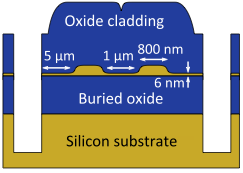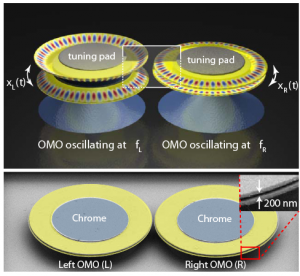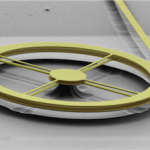Power Insensitive Silicon Microring Resonators
Lian-Wee Luo, Gustavo S. Wiederhecker, Kyle Preston, and Michal Lipson
http://dx.doi.org/10.1364/OL.37.000590
We demonstrate power insensitive silicon microring resonators without the need for active feedback control. The passive control of the resonance is achieved by utilizing the compensation of two counteracting processes, free carrier dispersion blueshift and thermo-optic redshift. In the fabricated devices, the resonant wavelength shifts less than one resonance linewidth for dropped power up to 335 μW, more than fivefold improvement in cavity energy handling capability compared to regular microrings.






